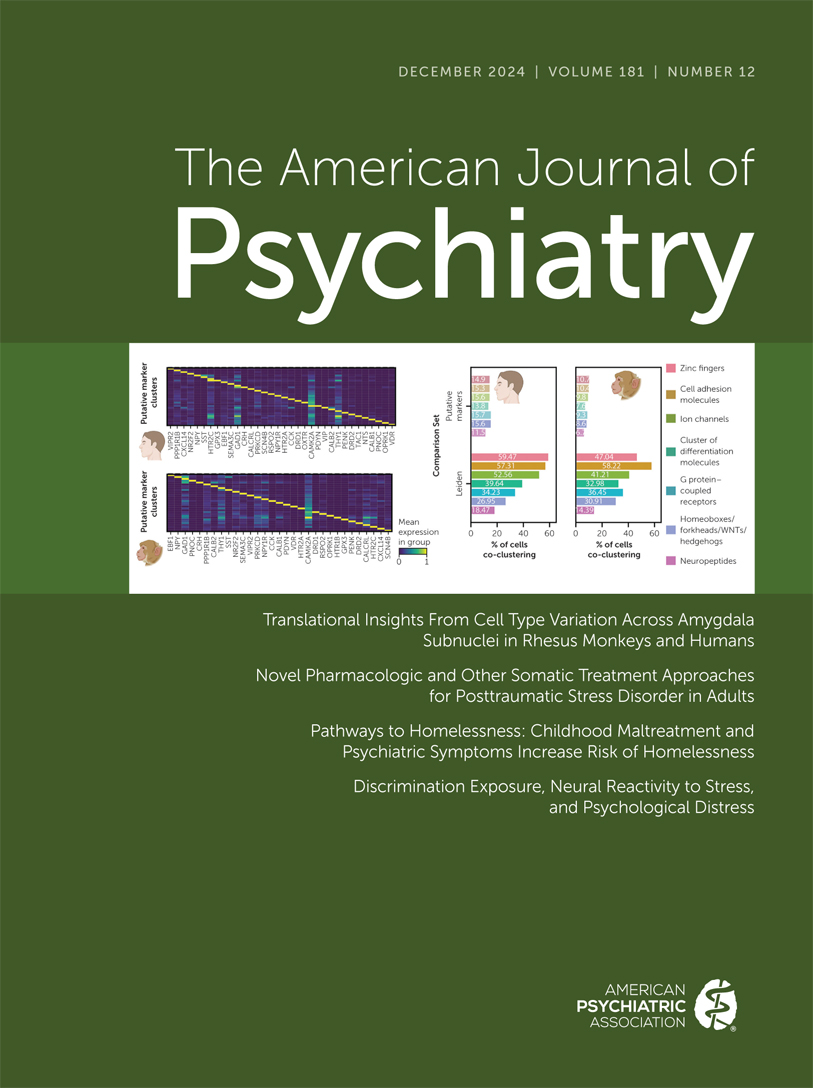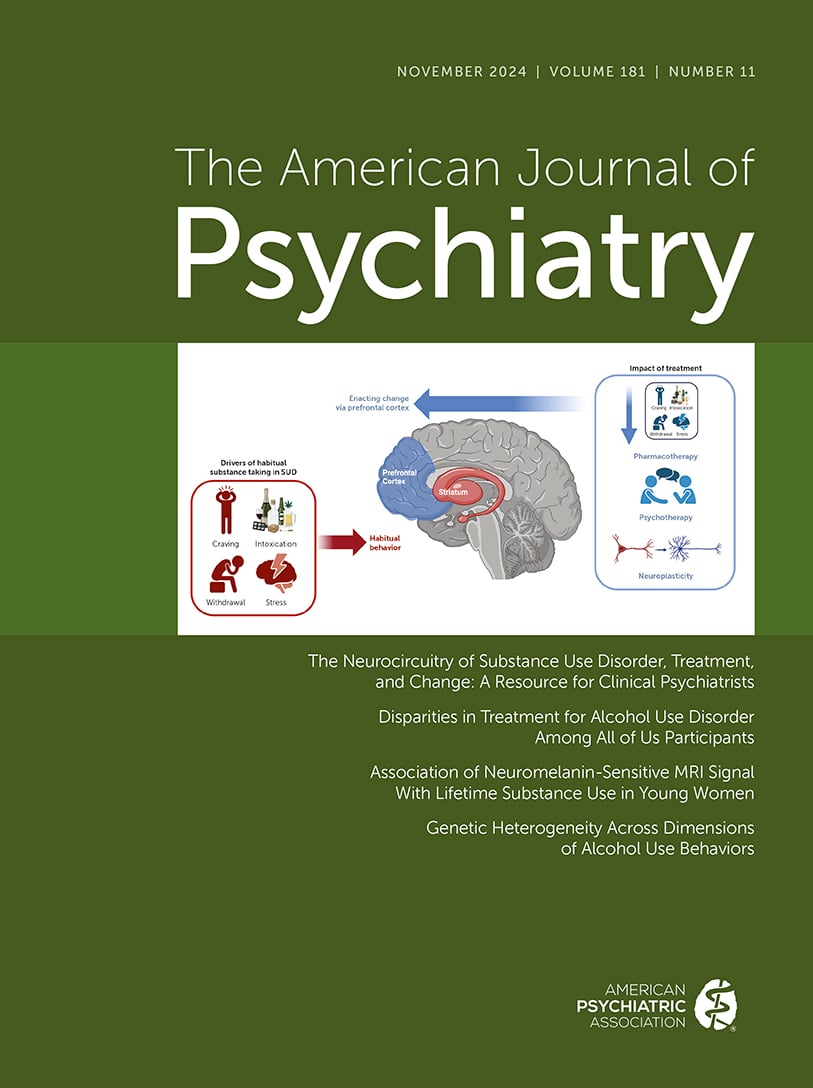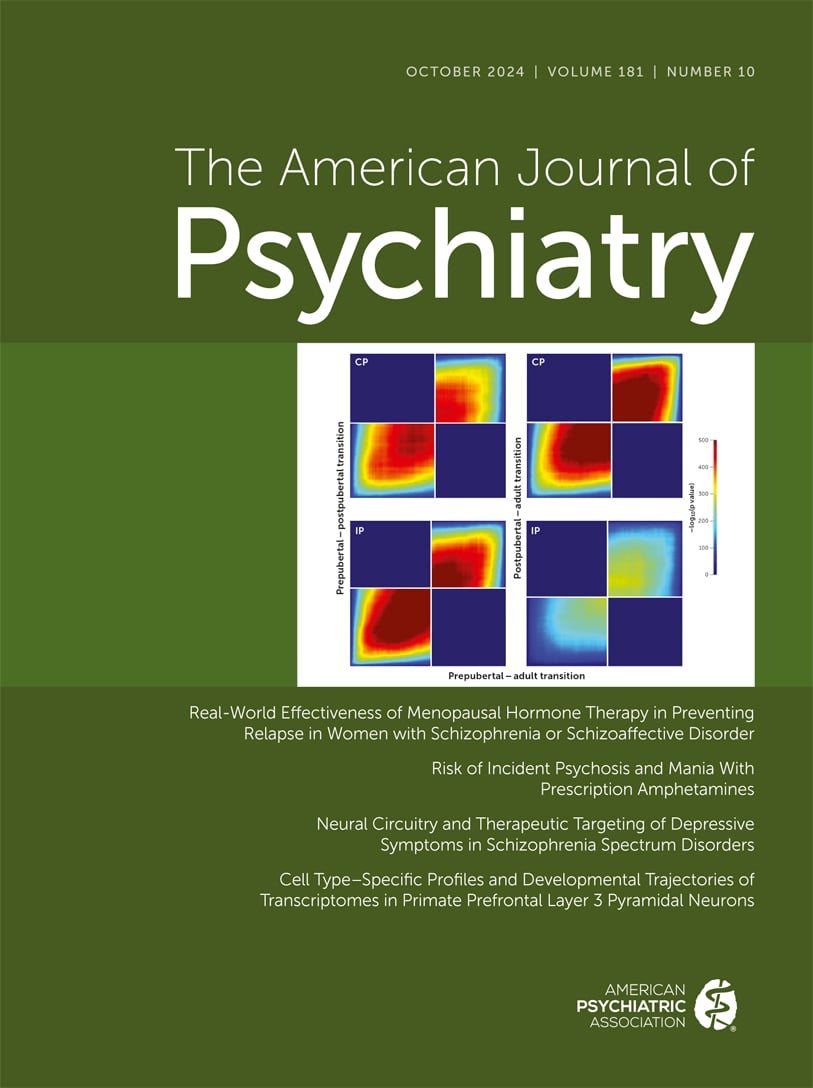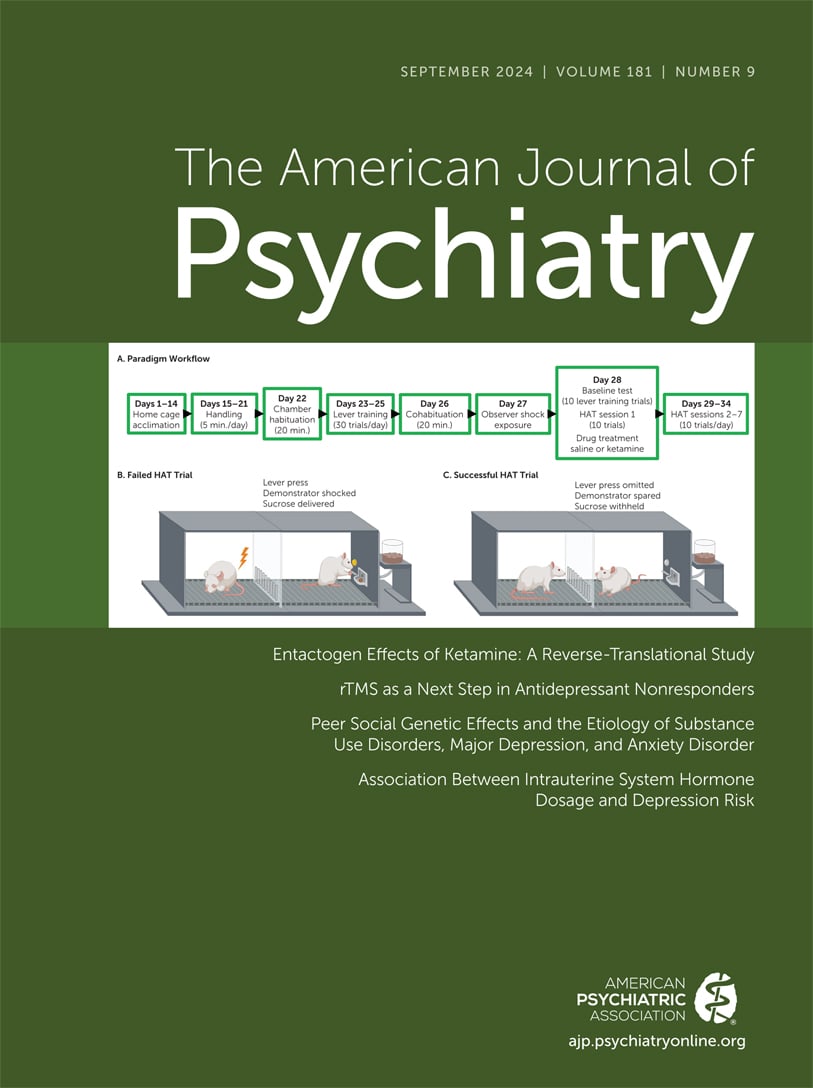American Journal of Psychiatry
- Volume 167
- Number 9
- September 2010
In This Issue
Perspectives
Editorials
Perspectives
Commentary
Perspectives
Introspections
Perspectives
Clinical Case Conference
Publication date: 01 September 2010
Pages1033–1037An adolescent male patient originally presented to a prodromal clinical research program with severe obsessive-compulsive behaviors and subthreshold symptoms of psychosis, which eventually developed into first-rank psychotic symptoms. The patient was ...
https://doi.org/10.1176/appi.ajp.2010.09071043Perspectives
Images in Psychiatry
Perspectives
Reviews and Overviews
Publication date: 01 September 2010
Pages1039–1050Paraneoplastic disorders of the CNS result from immune responses to neuronal proteins expressed by tumors found elsewhere in the body. Limbic encephalitis, one of the most common manifestations of paraneoplastic disorders, is characterized by rapid onset ...
https://doi.org/10.1176/appi.ajp.2010.09101547New Research
Articles
Publication date: 01 September 2010
Pages1051–1058Objective: As troops return from Iraq and Afghanistan to civilian life, clinicians are starting to grapple with how best to detect those at risk of postdeployment adjustment problems. Data reveal the presence of mental health problems in these soldiers, ...
https://doi.org/10.1176/appi.ajp.2010.09050739Publication date: 01 September 2010
Pages1059–1065Objective: It remains unclear to what degree children show signs of posttraumatic stress disorder (PTSD) after experiencing low-magnitude stressors, or stressors milder than those required for the DSM-IV extreme stressor criterion. Method: A representative ...
https://doi.org/10.1176/appi.ajp.2010.09020178Publication date: 01 September 2010
Pages1066–1074Objective: There is substantial evidence of a link between parental substance use disorders and antisocial behavior and childhood disruptive disorders in offspring, but it is unclear whether this transmission is specific to particular disorders or if a ...
https://doi.org/10.1176/appi.ajp.2010.09091272Publication date: 01 September 2010
Pages1075–1082Objective: The cognitive and motivational impairments observed in psychotic disorders may reflect early developmental alterations that, when combined with later environmental exposures, may drive the onset of positive psychotic symptoms. The ...
https://doi.org/10.1176/appi.ajp.2010.09060883Publication date: 01 September 2010
Pages1083–1091Objective: Schizophrenia is a neurodevelopmental disorder associated with abnormalities of brain structure and white matter, although little is known about when these abnormalities arise. This study was conducted to identify structural brain abnormalities ...
https://doi.org/10.1176/appi.ajp.2010.09101492Publication date: 01 September 2010
Pages1092–1099Objective: Mortality risk is relatively high in young people with asthma, and the risk may include causes of death other than those directly linked to respiratory disease. The authors investigated the association between asthma and suicide mortality in a ...
https://doi.org/10.1176/appi.ajp.2010.09101455Publication date: 01 September 2010
Pages1100–1107Objective: The authors assessed the relationship between exposure to ambient particulate matter and suicide in urban settings during a 1-year period. Method: The association between particulate matter and suicide was determined using a time-stratified case-...
https://doi.org/10.1176/appi.ajp.2010.09050706Publication date: 01 September 2010
Pages1108–1115Objective: Food additives can exacerbate ADHD symptoms and cause non-immunoglobulin E-dependent histamine release from circulating basophils. However, children vary in the extent to which their ADHD symptoms are exacerbated by the ingestion of food ...
https://doi.org/10.1176/appi.ajp.2010.09101529Publication date: 01 September 2010
Pages1116–1124Objective: Schizophrenia and bipolar disorder are associated with multidimensional disability. This study examined differential predictors of functional deficits in the two disorders. Method: Community-dwelling individuals with schizophrenia (N=161) or ...
https://doi.org/10.1176/appi.ajp.2010.09101406Communications and Updates
Letters to the Editor
Communications and Updates
Corrections
Communications and Updates
Letters to the Editor
Communications and Updates
Book Forum
APA Official Actions
Past Issues
View Issues Archive
Vol. 181 | No. 12

Vol. 181 | No. 11

Vol. 181 | No. 10
